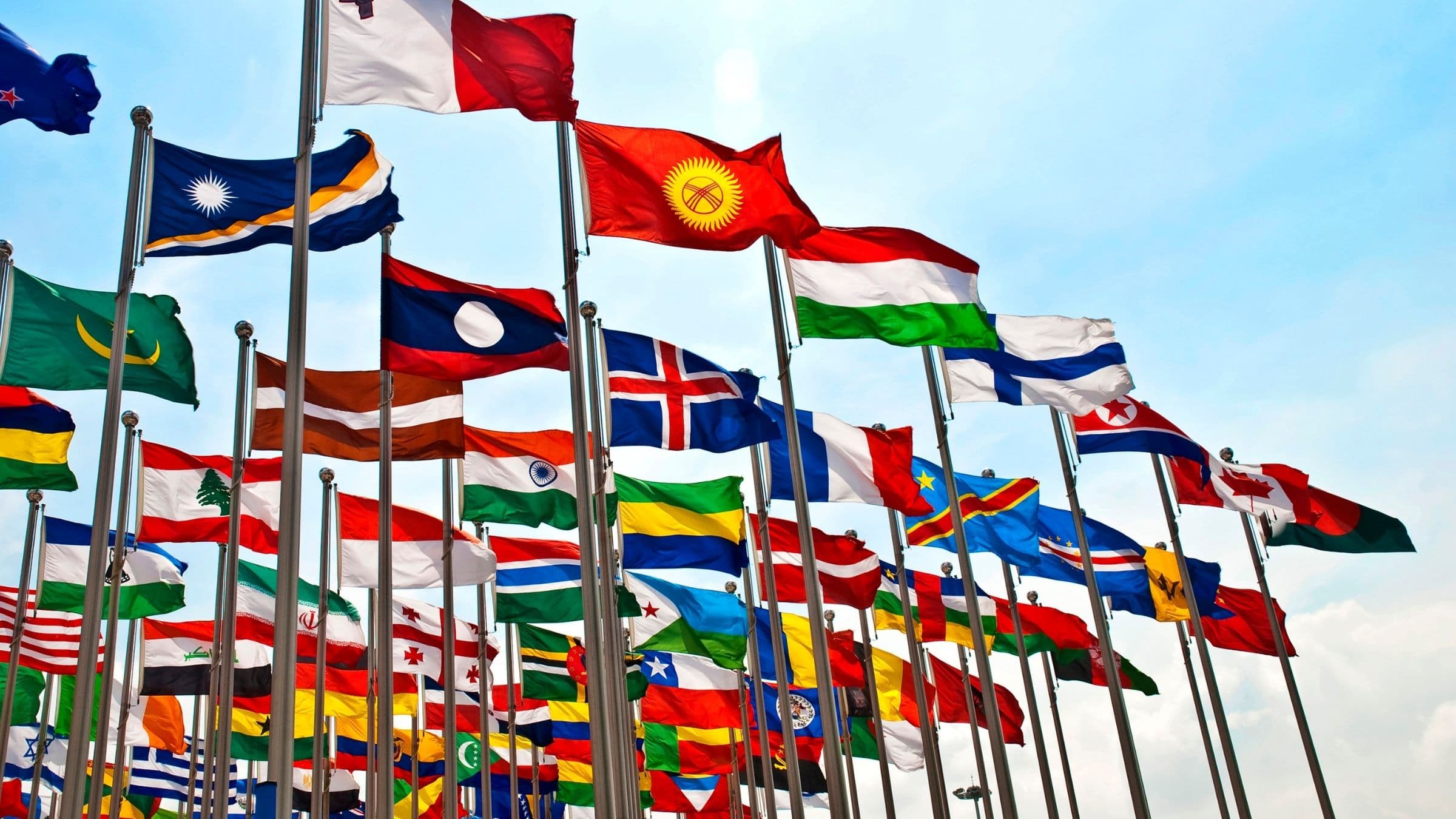
COUNTRY PROFILE
Discover more about the Nigeria market including overviews about the retail, foodservice, and food-processing sectors. Events, resources, and more are linked throughout the profile.

$631.4 million
U.S. food, agricultural and related exports to Nigeria in 2022

$58 million
total consumer-oriented food imports from the U.S. in 2022

230.8 million
total population in 2023
Euromonitor reports that lack of economic diversification, soaring unemployment, and a persistently high inflation rate cloud the economic outlook for Nigeria. Despite rising government revenues due to elevated oil prices, public debt continued to increase over the year, with the country’s fiscal health deteriorating further. However, investments into the non-oil sector are set to foster job creation within the country, while tightening monetary policy is expected to reduce inflation.
USDA’s Office of Agricultural Affairs in Lagos, or FAS Post Lagos, reports that Nigeria is the most populous country in Africa and has the largest economy on the continent. Demographically, its population is relatively young and urbanized. While there are clear food and agricultural export opportunities in Africa’s largest consumer market, 2023 has been a challenging year. Consumers have contended with the national currency’s devaluation, food price inflation, and the ending of the national fuel subsidy, all of which has hurt purchasing power. However, consumers, especially in cities, have favorable views of imported food and agricultural products, and domestic food processors seek stable supplies of food ingredients to bridge domestic production gaps.
With 230.8 million people in 2023, (CIA World Factbook Est.), Nigeria is Africa’s largest country by population, and has the continent’s largest economy by gross domestic product (GDP). By 2050, some estimate the population will reach 400 million, making it the third most populous country in the world behind India and China. The Hotel, Restaurant, and Institutional (HRI) sector is challenged by uncertain economic times and a depreciating national currency. Nigeria imports about US$10 billion in food and agricultural products each year. U.S. food, agricultural and related exports reached US$631.4 million in 2022. About 21% of this consisted of intermediate and consumer-oriented products.
In 2022, total consumer-oriented food imports amounted to about US$1.8 billion, and of this, the United States exported US$58 million. The country maintains a ban on some food and agricultural products including frozen poultry, beef, pork, eggs, vegetable oils, and spaghetti/noodles. Major consumer-oriented imports included dairy products, seafood, spirits, soups, bakery ingredients, and other food preparations. While there is a large potential consumer base, purchasing power and patronage of the hotel, restaurant and institutional (HRI) sector has been challenged by a depreciating naira, insecurity, foreign exchange scarcity, inadequate public infrastructure, and supply chain constraints.
Nigeria is a signatory to the ECOWAS Trade Liberalization Scheme and African Continental Free Trade Agreement (AfCFTA) whose primary objective is to remove trade barriers and restrictions among member African states. Nigeria is a member of the World Trade Organization (WTO). The country is eligible for preferential trade benefits under the African Growth and Opportunity Act (AGOA). AGOA was established to strengthen trade relationships between the U.S. and selected Sub-Saharan African countries. The U.S – Nigeria Trade and Investment Framework Agreement (TIFA) serves as the main bilateral forum on trade and investment issues.
U.S. processed food exports to Nigeria reached US$71.2 million in 2022, ranking it third in Sub-Saharan Africa. That represented a decline of 17% from the prior year which was US$85.8 million. Year to date (YTD) November of 2023 U.S. processed food exports to Nigeria dropped 37% to US$40.8 million. That equates to a loss of US$45 million since 2021 which adds to the U.S. trade deficit in food and agricultural products.
Top U.S. processed food exports to Nigeria in 2023 included:

$9 billion
estimated retail sales of packaged food in Nigeria in 2023

102.1%
growth in retail sales of packaged food since 2019

$22.4 billion
forecasted retail sales of packaged food by 2028
According to Euromonitor retail sales of packaged food in Nigeria is forecast to reach just over US$9 billion in 2023. That represents growth of 102.1% and a US dollar equivalent of US$4.5 billion from 2019. By 2028 Euromonitor forecasts that retail sales of packaged food in Nigeria will reach US$22.4 billion. This represents growth of 108.4% and a US dollar equivalent of US$11.6 billion from 2024.
High growth products in the forecast include:
FAS Post Lagos reports that in the early 2000s, investment spurred optimistic shopping malls plans which proliferated in major cities in Nigeria. International supermarkets such as ShopRite, SPAR, and GAME expanded operations across the country. Since 2015, Nigeria experienced fiscal policy volatility, supply chain challenges, currency depreciation, high operating costs, and eroding consumer purchasing power. These challenges are partly responsible for the trend towards smaller-sized operations serving neighborhoods and the growing number of shopping kiosks and street shops.
Nigeria’s retail food sector consists of supermarkets, convenience stores and small grocery stores, and traditional open-air markets, accounting for 2%, 25%, and 73% of total retail food sales, respectively.
Euromonitor reports that Nigerian supermarkets fared better than other modern grocery retailers in 2022. Despite spiraling inflation, constant value sales increased moderately. In addition, there was further opening of outlets. Consumers appreciate that they can buy a range of products in one place and can also save money by buying in larger pack sizes, which are usually sold at a lower price per unit. In addition, the channel is increasingly preferred by the growing young and professional working population which prefers to shop in modern and convenient environments rather than at open markets.
Spar continued to lead the competitive landscape in 2022, accounting for nearly a third of value share. However, its competitors are expanding. Brands such as Market Square, FoodCo, Just Rite, and Grocery Bazaar increased their number of outlets in 2022. Supermarkets are expanding faster than other grocery retailers such as hypermarkets as it is less difficult to find real estate for new store openings, given their smaller size relative to hypermarkets. Growing suburbs in major cities such as Lagos and Abuja are also driving growth.
FAS Post Lagos reports that while Nigeria has Africa’s largest potential consumer base, consumer purchasing power, and patronage of the Hotel, Restaurant, and Institutional (HRI) sector, has been stunted due to a weakened currency, rising import costs, high food inflation, and security concerns. Despite these challenges, hotels are developing more cafés, bars, restaurants, and catering services to attract customers. Quick service restaurants (QSRs) are reviewing menu options to economize and offer lower-priced options as eroding purchasing power has made street food stalls a more affordable option. Due to a weakened currency making international travel more expensive, middle-class consumers are increasingly looking inside Nigeria to visit nice restaurants, book celebrations, and go on “staycations.”
Foodservice operations can be categorized as standardized and regulated or traditional unregulated operations. The standardized operations are formalized with business names and organized structures, whose operations are usually in the urban areas, large-scale, and certified by authorities. These can be single-branch eateries or quick service restaurants (QSR) chains that provide minimal table service to customers.
Major foodservice operators in Nigeria are seeking franchise opportunities to represent U.S. companies in Nigeria, especially in the QSR sector. The country has national brands; there are also international QSR brands including KFC, Pizza Hut, Krispy Kreme, Burger King, and Cold Stone Creamery. The HRI sector faces insecurity challenges. Many HRI establishments are attached to budget hotels, which are operated by Nigerians and South African investors. Upscale restaurants serving continental or ethnic (e.g., steak houses, Asian, Tex-Mex, Lebanese, etc.) cuisine are frequently associated with boutique hotels.

$75.1 million
intermediate exports to Nigeria from the U.S. in 2022

22%
of the manufacturing sector falls under food processing

5%
of the country’s GDP contributed from food processing
FAS Post Lagos reports that small and medium sized enterprises (SMEs) dominate the domestic food processing industry. The sector also has some large international companies operating inside Nigeria, including Tolaram’s joint venture with Kellogg’s to produce snacks and breakfast cereals. However, in 2023, several non-food consumer-oriented international companies announced plans to divest operations in Nigeria due to unfavorable macroeconomic conditions. It is difficult for the local food processing industry to compete with imported brands due to weak infrastructure, scarcity of raw materials, and high operating costs.
International brands are perceived as higher quality and are frequently cheaper than domestically produced processed foods. Processed foods from large multinationals are usually imported and distributed by domestic franchisees and distributors. FAS-Post Lagos estimates that about 80% of the larger food processing, intermediate foods, and ingredient companies are headquartered in Lagos.
Food processing accounts for more than 22% of the manufacturing sector and contributes about 5% of the country’s GDP. The sector is dominated by small and medium-sized enterprises. There are no established market leaders. Food processing has been hampered by high import costs, foreign exchange scarcity, volatile domestic production, insecurity, and soft consumer purchasing power.
Intermediate exports to Nigeria from the U.S. in 2022 totaled US$75.1 million. That was a rank of second in the region. Top products included corn-soy-milk blends, essential oils and flavorings, finishing agents, yeasts, dextrins, peptones and proteins, vegetable oil and sugar, sweeteners, and beverage bases.
